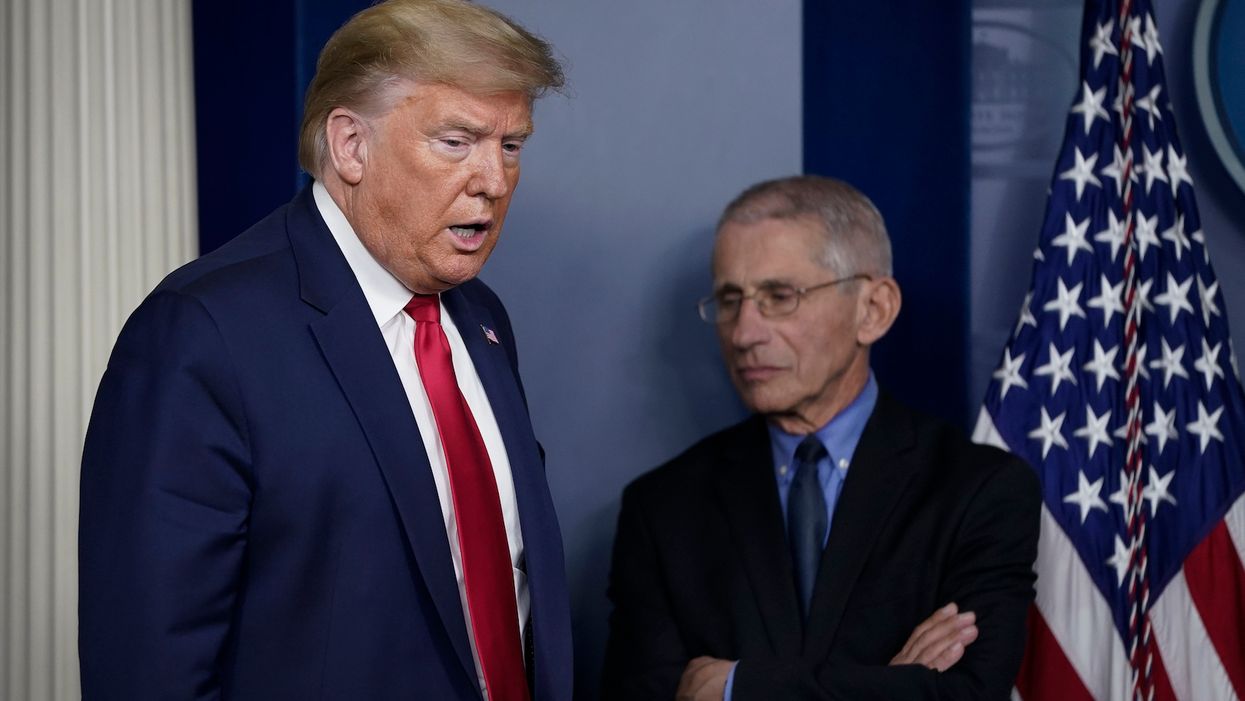
Drew Angerer/Getty Images

'Let's see how it works'
The Food and Drug Administration issued an emergency authorization for the use of an anti-malaria drug for the treatment of COVID-19, after the drug showed some potential as a treatment for the disease caused by the novel coronavirus, Politico reported.
The authorization will allow the drugs, chloroquine and hydroxychloroquine, to be donated to the national stockpile and to be prescribed by doctors to COVID-19 patients without a need for the drug to go through clinical trials.
"Scientists in America and around the world have identified multiple potential therapeutics for #COVID19, including chloroquine and hydroxychloroquine," Health and Human Services Secretary Alex Azar wrote on Twitter on Sunday. "President Trump is taking every possible step to protect Americans from the coronavirus and provide them with hope."
Azar also announced that Sandoz donated 30 million doses of hydroxychloroquine sulfate and Bayer donated 1 million doses of chloroquine phosphate.
There is still no proven treatment or cure for COVID-19, but researchers and physicians in the U.S., South Korea, China, and France have seen the drugs effectively reduce COVID-19 symptoms in some cases:
Chloroquine is normally used as an anti-malarial drug, used for the prevention and/or treatment of malaria. It's available in the United States by prescription, and can be safely taken by men and women of all ages, including pregnant women.
Doctors in China and South Korea have observed that the coronavirus patients treated with chloroquine show reduced fever and better lung CT images, and so far research has not found any negative effects of the treatment.
There is dispute within the medical community about the wisdom of the emergency authorization and about the effectiveness of the drugs. Also, there is concern that the repurposing of chloroquine and hydroxychloroquine for COVID-19 will create a shortage of the drug for malaria, lupus, and rheumatoid arthritis patients who rely on it.
Dr. Anthony Fauci, director of the National Institute of Allergy and Infectious Diseases, said there is no scientific evidence at this time that the anti-malaria drugs can be used to treat COVID-19, calling indications of its success "anecdotal."
"It was not done in a controlled clinical trial. So you really can't make any definitive statement about it," Fauci said, ABC News reported.